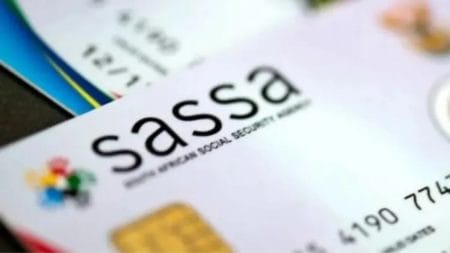Is a loved misusing a SASSA Grant? You have to report them!
The South African Social Security Agency (SASSA) provides essential support to millions of vulnerable South Africans, including the elderly, disabled individuals, and children from low-income households. Unfortunately, some people take advantage of this system, misusing a SASSA grant for personal gain. Misuse of these funds is not only illegal but also reduces the resources available to those in genuine need.
If you’re aware of someone misusing a SASSA grant, here’s a guide on the different types of misuse and how to report it.
Why is Reporting SASSA Grant Fraud Important?
SASSA grants are funded by taxpayers and are meant to uplift vulnerable populations, such as the elderly, disabled, children, and those facing financial distress. Fraudulent activities reduce available resources and can delay or prevent legitimate beneficiaries from receiving aid.
By reporting suspected fraud, you’re helping to protect the integrity of South Africa’s social welfare system and ensure that funds are used correctly to benefit those in real need.
Common Types of SASSA Grant Misuse
1. Using Grants for Non-Beneficiaries
One of the most common types of SASSA grant misuse involves individuals continuing to collect grants on behalf of people who no longer qualify, such as deceased relatives. SASSA aims to prevent this through regular checks, but some still try to collect grants fraudulently.
Example: A person may continue to withdraw a pension or child grant even after the death of the beneficiary, effectively stealing funds meant for those in real need.
2. False Claims for Disability Grants
Disability grants provide support for individuals who are genuinely unable to work due to a disability. Unfortunately, some people falsely claim or exaggerate a disability to qualify for these grants. This not only drains resources but also makes it more difficult for those with legitimate disabilities to receive timely assistance.
Example: Someone may present fake medical records or exaggerate a condition to qualify for a disability grant, depriving genuinely disabled individuals of quicker access to support.
Related: Temporary vs Permanent SASSA Disability Grants: What’s the Difference?
3. Misuse of Child Support Grants
Child support grants are intended to help cover basic needs like food, clothing, and school supplies for children. Misusing these funds for personal expenses undermines the purpose of this grant.
Example: A parent or guardian might use the child support grant for personal items or non-child-related expenses, leaving the child’s needs unmet.
4. Unlawful Sale or Transfer of Grants
Some people attempt to “sell” their grant rights to others or transfer a grant to someone else for a fee. This is illegal and can be reported if observed.
Example: A pensioner might transfer their old age grant to another individual, who uses it as their own, without any formal approval from SASSA.
5. Multiple Grant Applications
Submitting multiple applications under different identities to receive multiple grants is another form of fraud. Individuals may use fake identities, forge documents, or apply using relatives’ details to receive grants they aren’t eligible for.
Example: A person applies for the same grant multiple times under slight variations of their name or with fake documents to receive a larger total sum.
Related: Can You Apply for More Than One SASSA Grant? What You Need to Know
6. Fraudulent Documentation for Grant Approval
Providing false or altered documents, such as birth certificates, death certificates, or medical records, to meet eligibility criteria is fraud and is punishable by law. Fraudulent documentation often goes hand-in-hand with false claims.
Example: Someone submits a false death certificate to claim a deceased person’s old age grant or uses fake medical documents to qualify for a disability grant.
7. Syndicate or Organised Grant Fraud
Some instances of grant fraud involve organised groups or syndicates that systematically exploit the grant system. These groups may use stolen identities, falsified documents, and bribery to illegally obtain multiple grants.
Example: A group of people collaborates to impersonate beneficiaries, forging documents to claim multiple grants illegally.
8. Misuse of Foster Child Grants
Foster child grants are meant to support the needs of children in foster care. When caregivers misuse these funds, the foster children suffer, often receiving inadequate care and support.
Example: A caregiver collects a foster child grant but does not provide the child with essentials, using the funds for personal expenses instead.
Related: The Role of Social Workers in the SASSA Foster Child Grant Application Process
9. Unreported Income or Assets
Certain SASSA grants, such as the Old Age Grant or Disability Grant, are means-tested, meaning they’re only available to individuals within a specific income bracket. Beneficiaries who hide new sources of income or fail to declare assets are defrauding the system.
Example: A person receiving a means-tested grant begins earning a salary but does not report it, continuing to collect the grant fraudulently.
10. Fraudulent Use of Social Relief of Distress (SRD) Grant
The SRD grant, introduced during crises like COVID-19, provides temporary relief to those in urgent need. Fraudulent claims for SRD grants involve individuals who exaggerate or misrepresent their circumstances to qualify.
Example: A person might falsely claim to be unemployed or significantly understate their income to qualify for the SRD grant.
How to Report SASSA Grant Fraud
If you suspect someone is misusing a SASSA grant, you can report it through one of the following methods:
SASSA Toll-Free Number
SASSA has a toll-free fraud hotline where you can report suspected fraud anonymously. Call 0800 60 10 11 to provide information about fraudulent activities.
Visit a SASSA Office
If you prefer to report in person, visit your nearest SASSA office. The staff there will assist you in filing a fraud report. Remember to bring any evidence or information to support your claim.
Contact SAPS (South African Police Service)
For severe cases, you may also report the fraud to the South African Police Service (SAPS). Fraud is a criminal offense, and those found guilty may face jail time or heavy fines.
What Happens After You Report Grant Fraud?
Once a report is filed, SASSA investigates the case to verify whether fraud has occurred. If evidence confirms misuse, SASSA can:
- Stop Payments: They may suspend payments to the fraudulent claimant.
- Initiate Legal Action: SASSA can take legal action against the individual, including filing criminal charges.
- Recover Funds: SASSA may demand the repayment of the fraudulently received funds.
Fraudulent beneficiaries may face additional penalties, including disqualification from future benefits and a criminal record.
Protecting the SASSA System
To prevent fraud, SASSA regularly updates its systems and collaborates with other government departments to verify beneficiaries’ information. Despite these efforts, public vigilance remains essential. Every report helps in the fight to protect the integrity of the social welfare system.










